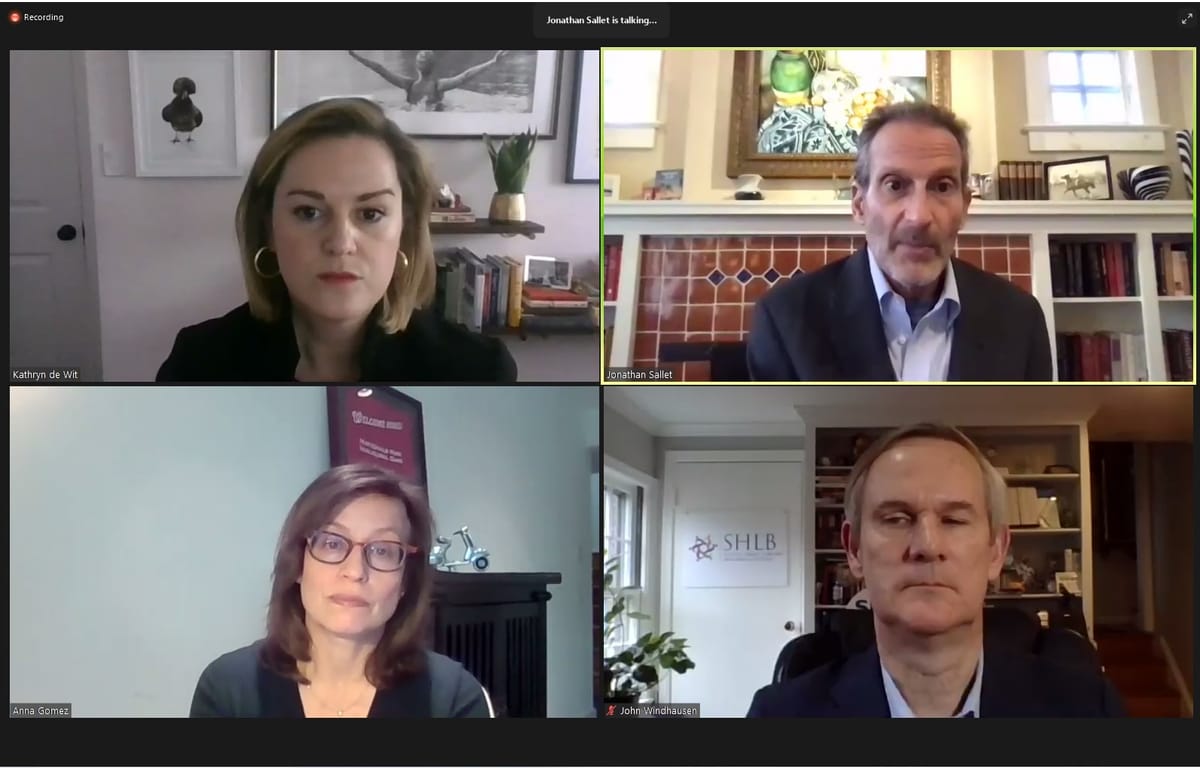Biden Administration Should Approach Broadband Considering Adoption and Digital Literacy
February 12, 2021— The Biden administration has the opportunity to do what his predecessors failed to: Take a different tack on broadband that will include considering it critical infrastructure, experts say. “We have to look at [broadband] adoption and digital literacy and affordability,” said Anna
Benjamin Kahn

February 12, 2021— The Biden administration has the opportunity to do what his predecessors failed to: Take a different tack on broadband that will include considering it critical infrastructure, experts say.
“We have to look at [broadband] adoption and digital literacy and affordability,” said Anna Gomez, partner at Wiley Rein, adding it was no longer sufficient to just consider the physical deployment of broadband infrastructure. “It has to be looked at from all perspectives.”
The past week has provided ample opportunity for industry and government veterans to press the new-look White House and Federal Communications Commission on changes to thinking on broadband. That’s because Monday was the 25-year anniversary of the Telecommunications Act of 1996.
Gomez stated that the $3.2 billion stimulus bill passed by Congress in December that included $50 a month for qualified households to put towards securing broadband access simply would not be sufficient.
Though Gomez recognized the need for the legislation, known as the Emergency Broadband Benefit Program, she said it really was not enough.
“If you consider the volume [of consumer demand], that will only last a few months.” She added that existing lifeline programs designed to provide basic broadband coverage, but they are poorly funded and the speed that they provide is not sufficient.
Pew’s broadband research initiative manager Kathryn de Wit said this administration cannot make the same mistake as previous policy makers and fail to recognize broadband as a critical piece of infrastructure. She said that making broadband more widespread and reliable would be critical for all levels of economic development, telehealth, and virtual school attendance.
Gomez added that efficient broadband implementation would be necessary to address almost every aspect of President Biden’s goals for his administration. She said that everything from fighting climate change, to addressing racial and economic inequality, to combating the Covid-19 Pandemic, would benefit by implementing universal broadband coverage.
“I think that we are seeing more policymaker focus on the role that broadband plays,” she said.
John Windhausen of the Schools, Health and Libraries Broadband Coalition added that addressing these concerns will not just be about crafting new legislation, but amending existing legislation as well. Windhausen illustrated that by pointing to the E-Rate program, which provides subsidized internet for public schools and libraries and that has consistently received bipartisan support.
He continued by stating that the E-Rate program has changed over the years, broadening its scope to accommodate the implementation of new technology, such as when it was amended in 2014 to account for Wi-Fi.
“[The E-Rate] might be the most effective way to connect households—especially to low-income households.”
All these sentiments were echoed during the “Broadband in Low-Income and Marginalized Communities” event held later in the day. Olivia Wein, staff attorney at the National Consumer Law Center, said the Emergency Broadband Benefit would be a game changer for families in need.
“It addresses the needs of the whole household,” Wein said.“ Kids can do their homework, parents can work, everybody can get their telemedicine.”









Member discussion